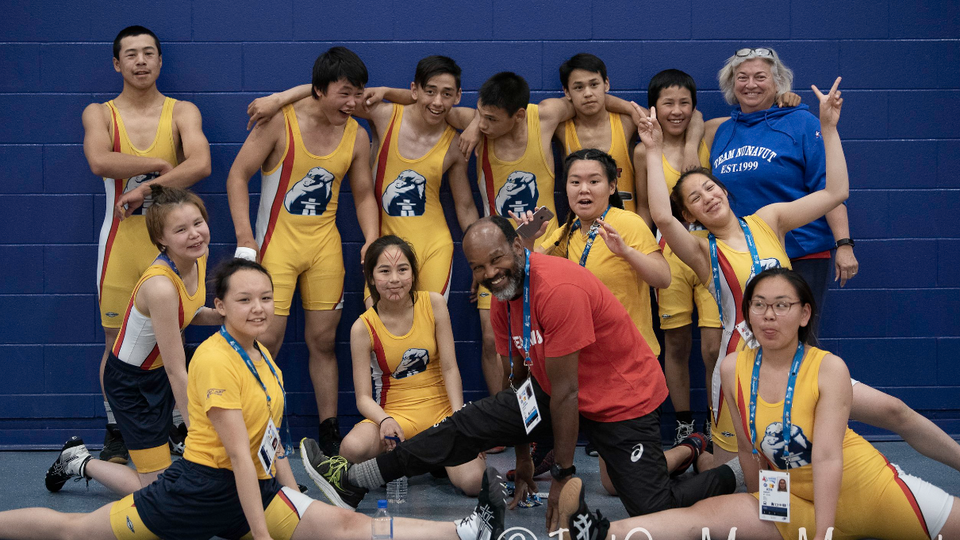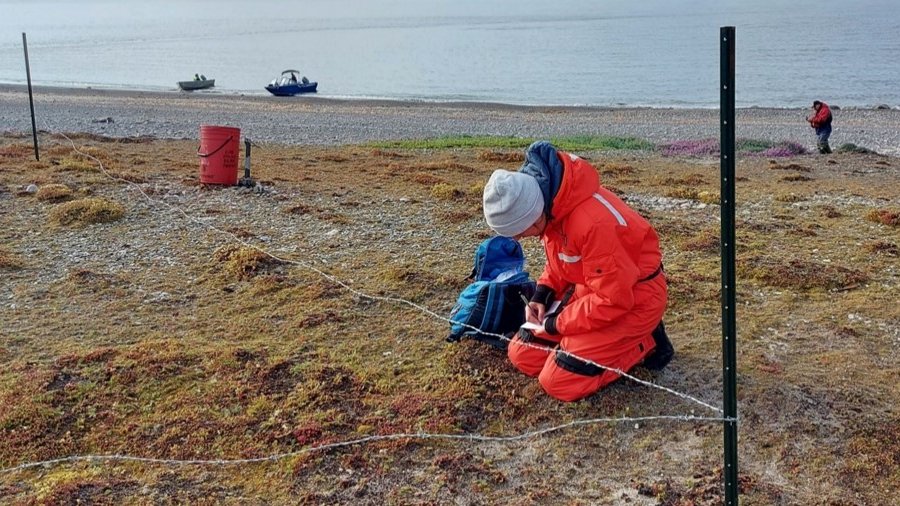
Sometimes, agents of social change alter the fabric of communities in surprisingly little time. One such person in the Kitikmeot region of Nunavut is Kendall Aknavigak.
Born and raised in Cambridge Bay, Aknavigak is a co-founder and the Executive Director of the Kitikmeot Friendship Society (KFS).
KFS is a grassroots organization founded by a dedicated team of Aknavigak and five other community members, all committed to improving the health and wellness of others. It emerged from a collective experience of adversity shared by Inuit and non-Inuit in the Kitikmeot region.
“KFS embodies the challenges I witnessed throughout my upbringing and professional experiences across the region and territory. Seeing peers struggle amidst a lack of community resources spurred my later involvement in social settings and human services programs,” said Aknavigak.
Through her experiences, she realized that community-led initiatives were imperative to address diverse needs of Inuit across all age demographics. KFS aimed to bridge service gaps at the grassroots level, ensuring safety, inclusivity, and accessibility to programming and support services.
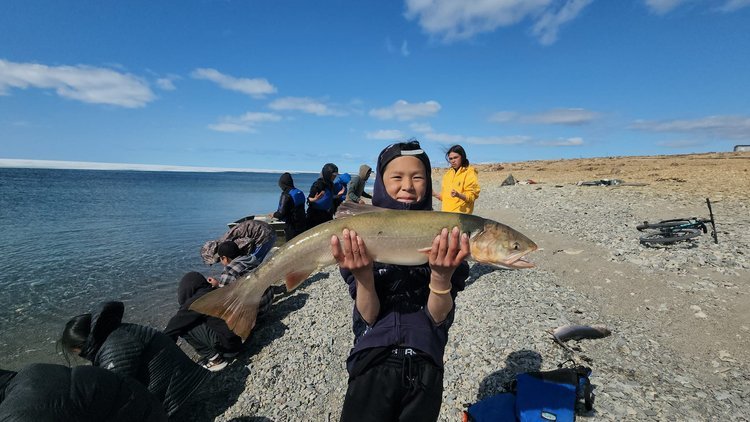
Nuna Buddies Program in Cambridge Bay, Nunavut. (Photo: Kitikmeot Friendship Society)
To achieve non-profit status, Aknavigak and her team navigated the legal and administrative processes required for registration. Leveraging community support and partnerships, they demonstrated their commitment to addressing the region's social challenges, which contributed to gaining recognition as a non-profit organization dedicated to serving diverse community needs.
Walking into the Kitikmeot Friendship Society headquarters in Cambridge Bay immediately invokes a sense of belonging and security. Just three years into operations, the KFS employs 50 staff and hosts many events and activities in its headquarters, which is located and operated in Cambridge Bay. They also create and facilitate events, activities, and operations in Kugluktuk, Kugaaruk, Gjoa Haven, and Taloyoak.
This is a remarkably rapid expansion in a relatively short amount of time. This growth can be attributed to the relentless determination of the team and the desire to fulfill community needs when it comes to accessible and culturally safe social wellness programming in the region.
“All of our programs are developed using Inuit Qaujimajatuqangit (IQ) values and societal law, and we ensure that we are able to instill these values within all the people that come to us”, Aknavigak explains.
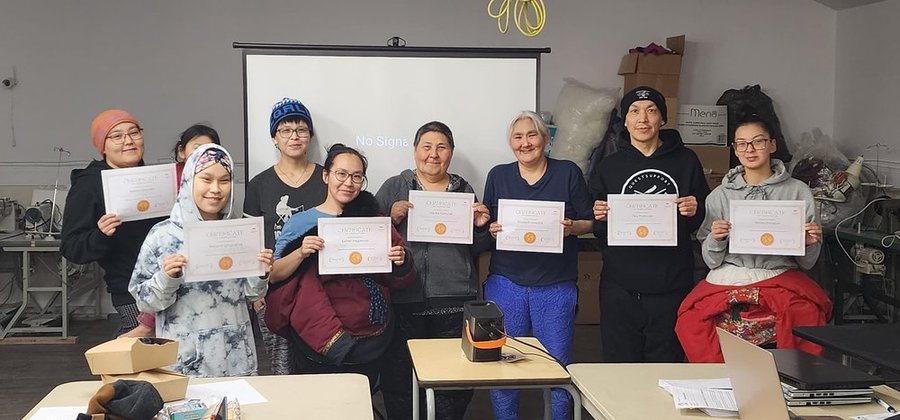
Computer Literacy Program in Gjoa Haven, Nunavut. (Photo: Kitikmeot Friendship Society)
KFS has a wide range of programming that varies from after-school clubs, land-based day camps, computer literacy, and mental health support. The after-school girls club, for example, regularly hosts 60 - 100 girls from ages 7-16 on a weekly basis. Nuna Buddies, the summer day camp for youth, hosted over 300 youth in the summer of 2023 in 5 communities. In the two years before that there were approximately 300 youth participants.
Prior to holding the portfolio of Children’s First Initiative, families trying to access Jordan’s Principle (which assists Indigenous children and their families with the necessities such as food, furniture, clothing, medical travel and housing costs) had to apply for it through Iqaluit – some 1000+ kilometers away. Now, KFS has taken over the role of administrating this service to the Kitikmeot region.
Beyond these initiatives, the organization operates a 24-child daycare, a 3-bed transitional housing unit, and a 14-bed women’s shelter in Cambridge Bay. KFS intends to build capacity with Inuit so that they can fulfill their full potential. Every program offered is food secure and is led by staff trained in mental health support and social services.
Follow-up care for addiction treatment is not available in the territory. This puts people seeking treatment in southern cities in the difficult situation of returning home with little to no addictions-specific support, such as transitional housing. This is a major wellness issue that the Friendship Society is working to address.
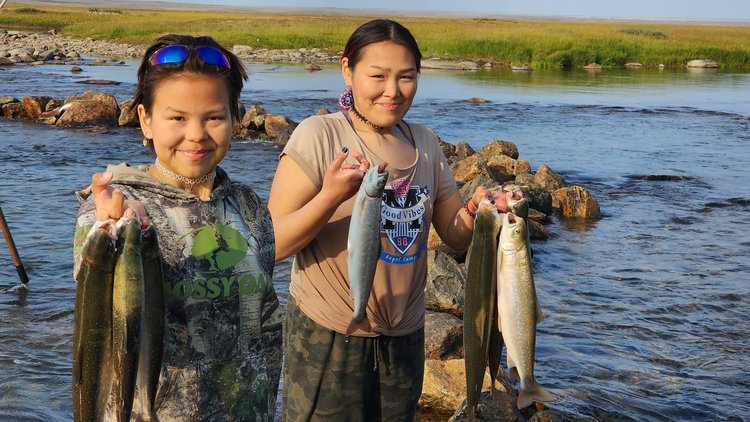
Nuna Buddies Program in Kugaaruk, Nunavut. (Photo: Kitikmeot Friendship Society)
In KFS staff experience, it is well-known that most Inuit face issues of trans-institutionalization – a process where people exit correctional facilities, and upon returning to their community, often face homelessness. People experiencing this sometimes resort to using substances which affects their behaviour and creates a cycle where they may end up in correctional facilities again or lose their lives to suicide.
As with every non-profit, funding is an ongoing challenge. “The continuity of programs is vital, despite being fully dependent on third-party funding due to being a non-profit. Passion means we find the money no matter what”, Aknavigak says.
Incredibly, even when a program does not have the funding it needs, they always find a way to keep it going if it means providing a needed service to community members. At one point, Girls Club lacked money but was still offered due to being such a well-loved and highly attended weekly after-school program.
Aknavigak and her colleagues are working diligently on new projects to expand their services. The next major step forward is planning the Ummati (Heart) Oasis Centre in Cambridge Bay, an ambitious multi-million-dollar project that will house new offices for staff, a larger daycare, transitional housing, a homeless shelter, a healing center, and a workshop – among other things. These new facilities will allow KFS to enhance job security for staff by providing housing and enable the organization to hire and train even more local community members.
The Friendship Society is also expanding program offerings in communities so that Inuit don’t need to travel to access things like gender-based violence services, Fetal Alcohol Spectrum Disorder (FASD) assessment clinics, or support groups for children who are members of the 2SLGBTQIAA+ community.
The Ummati Oasis Centre project has not broken ground yet, but plans are well underway. To support the Kitikmeot Friendship Society, check out their website: www.kitikmeotfs.ca
